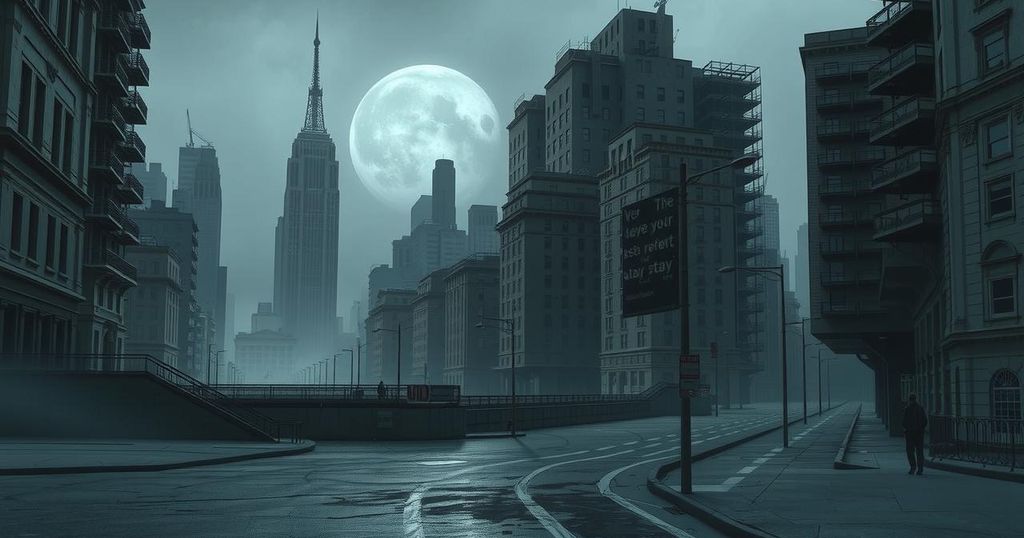The Lingering Consequences of Duterte’s Drug War: Impacts on Law and Civil Society in the Philippines
The article discusses the significance of former President Rodrigo Duterte’s arrest related to his drug war, highlighting international advocacy for accountability and the ongoing challenges faced by human rights defenders in the Philippines. It outlines the ICC’s role in prosecuting crimes and the impacts of Duterte’s regime on societal norms regarding violence against activists.
The recent arrest of former Philippine President Rodrigo Duterte on charges related to his controversial drug war signifies a pivotal moment for both law and civil society in the Philippines. Duterte’s regime, which operated from 2016 to 2022, is infamous for its lethal anti-drug campaign, resulting in thousands of fatalities. This event raises questions about potential shifts in the accountability of past governmental actions and the prospects for human rights protections moving forward.
Duterte, who has expressed no regrets for the thousands killed during the drug war, was arrested following a warrant issued by the International Criminal Court (ICC). Upon his return to the Philippines from Hong Kong, he was immediately flown to The Hague where the ICC is based. His allies claim the arrest is illegitimate due to the Philippines’ withdrawal from the ICC in 2019; however, the ICC maintains jurisdiction over alleged crimes committed prior to this withdrawal.
International human rights advocates have celebrated this development as a beacon of hope for justice. Agnes Callamard, Secretary General of Amnesty International, remarked on the significance of holding leaders accountable for severe crimes, emphasizing that it reinforces the efficacy of international law amidst global governmental resistance towards accountability.
The ICC is tasked with prosecuting crimes such as genocide and war crimes. Although specific charges against Duterte remain undisclosed, sources indicate that the arrest warrant stems from allegations of crimes against humanity during his term. An initial investigation by the ICC began in 2018, and further scrutiny resumed in 2021 after the Philippines’ Supreme Court asserted that the country was still obligated to cooperate with the ICC.
Duterte’s controversial record includes connections to extrajudicial killings orchestrated by the Davao Death Squad prior to his presidency. Under his command, the anti-drug campaign escalated into mass killings, with estimates of fatalities ranging from 6,000 to over 20,000, as reported by Global Witness. Such violence has sparked international inquiries and raised significant human rights concerns.
The implications of Duterte’s tenure on human rights defenders have been dire. The normalization of extrajudicial violence has severely endangered activists, particularly those advocating for land and environmental rights. Despite Duterte’s arrest, advocates caution that the underlying systemic threats remain largely unaddressed. Rachel Cox of Global Witness highlighted the need for the current administration to dismantle harmful policies that continue to jeopardize the safety of defenders.
Environmental activists have faced extreme risks, with the Philippines consistently recognized as one of the deadliest nations for such advocates. Notably, violent incidents surged during Duterte’s presidency, particularly after policies were implemented that favored mining interests. According to reports, the enforcement of policies like the Anti-Terrorism Act has also been instrumental in suppressing dissent and framing activists as threats.
Looking ahead, the stability of civic space for environmental and human rights representatives remains uncertain. Opinions within activist circles suggest that without significant policy changes under the current administration of President Ferdinand Marcos Jr., there will be little improvement in security for defenders. Calls for reform, specifically targeting unjust policies instituted during Duterte’s rule, highlight a pressing need for a shift in governmental approach to human rights advocacy.
While Duterte’s arrest represents a hopeful turning point, experts like Gregorio Bueta note the necessity for sustained efforts aimed at enhancing advocacy conditions within the country, suggesting that this arrest could strengthen public confidence in the judicial system over time, although immediate changes are unlikely to occur.
The arrest of Rodrigo Duterte marks a crucial juncture in addressing the grave injustices of his administration’s war on drugs. Despite the hopeful narrative surrounding accountability mechanisms, systemic issues persist, particularly for human rights and environmental defenders. Moving forward, the potential for meaningful reform hinges on dismantling oppressive policies and fostering a safer environment for activism in the Philippines.
Original Source: www.eco-business.com




Post Comment